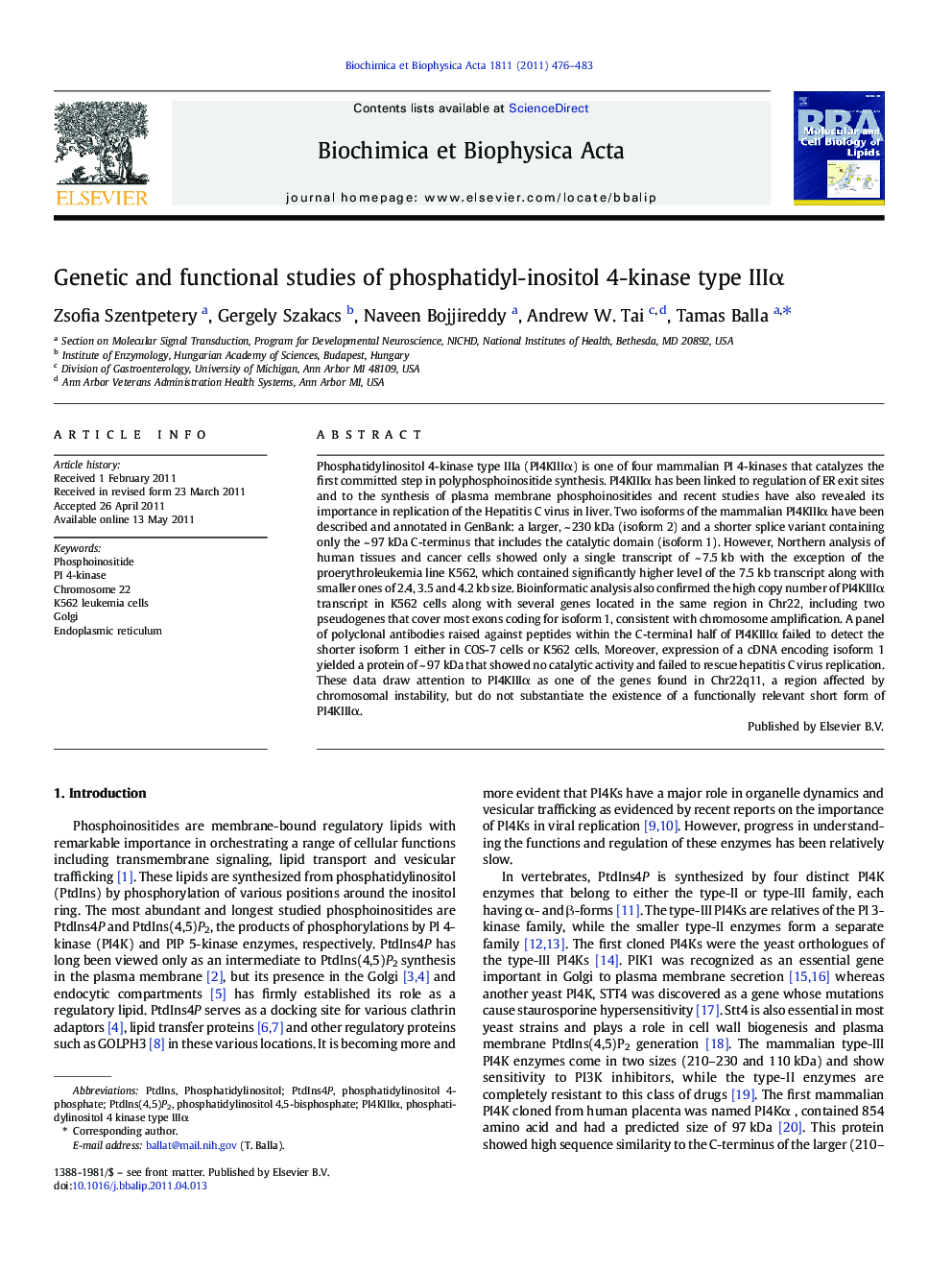| Article ID | Journal | Published Year | Pages | File Type |
|---|---|---|---|---|
| 1949537 | Biochimica et Biophysica Acta (BBA) - Molecular and Cell Biology of Lipids | 2011 | 8 Pages |
Phosphatidylinositol 4-kinase type IIIa (PI4KIIIα) is one of four mammalian PI 4-kinases that catalyzes the first committed step in polyphosphoinositide synthesis. PI4KIIIα has been linked to regulation of ER exit sites and to the synthesis of plasma membrane phosphoinositides and recent studies have also revealed its importance in replication of the Hepatitis C virus in liver. Two isoforms of the mammalian PI4KIIIα have been described and annotated in GenBank: a larger, ~ 230 kDa (isoform 2) and a shorter splice variant containing only the ~ 97 kDa C-terminus that includes the catalytic domain (isoform 1). However, Northern analysis of human tissues and cancer cells showed only a single transcript of ~ 7.5 kb with the exception of the proerythroleukemia line K562, which contained significantly higher level of the 7.5 kb transcript along with smaller ones of 2.4, 3.5 and 4.2 kb size. Bioinformatic analysis also confirmed the high copy number of PI4KIIIα transcript in K562 cells along with several genes located in the same region in Chr22, including two pseudogenes that cover most exons coding for isoform 1, consistent with chromosome amplification. A panel of polyclonal antibodies raised against peptides within the C-terminal half of PI4KIIIα failed to detect the shorter isoform 1 either in COS-7 cells or K562 cells. Moreover, expression of a cDNA encoding isoform 1 yielded a protein of ~ 97 kDa that showed no catalytic activity and failed to rescue hepatitis C virus replication. These data draw attention to PI4KIIIα as one of the genes found in Chr22q11, a region affected by chromosomal instability, but do not substantiate the existence of a functionally relevant short form of PI4KIIIα.
► PI4KA, the gene encoding phosphatidylinositol 4-kinase IIIα is surrounded by two partial pseudogenes ► on Chr22q11. ► Most human tissues and cancer cells do not express transcripts corresponding to isoform 1 of PI4KIIIα. ► K562 proleukemia cells show high levels of full and partial PI4KIIIα transcripts as well as several other ► genes in the vicinity of PI4KA suggesting chromosome amplification. ► The shorter, isoform 1 of PI4KIIIα cannot be detected at the protein level. ► Expressed isoform 1 of PI4KIIIα shows no catalytic activity and cannot rescue hepatitic C viral replication in cells depleted in endogenous PI4KIIIα.
